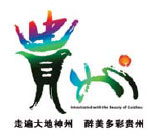Province prioritizes global partnerships
International cooperation key on path to greater prosperity International cooperation has become a crucial part of Guizhou's path toward prosperity.
The mountainous province in Southwest China has cooperated with several other countries in recent years.
"Guizhou has become a favorite travel destination for Korean citizens in recent years," said Kim Jang-Soo, the Republic of Korea's ambassador to China. He said that more cooperation between the country and Guizhou was expected.
A raft of free trade agreements between China and the ROK were inked in Seoul in June and many cities and provinces in China initiated deepened cooperation with South Korea.
Under the agreements, China will remove tariffs on 91 percent of all products imported from the ROK within the next 20 years, while Seoul will eliminate tariffs on 92 percent of all goods in the other direction.

"The signing of the FTA between China and the ROK will extend the bilateral cooperation to more cities in China, such as Guizhou," said Kim.
According to data from the department of commerce in Guizhou, the value of trade between China and the ROK reached $235 billion in 2014.
Statistics show that exports between Guizhou and the ROK were valued at $445 million and included automobiles and parts, precision instruments, communications equipment and machinery.
"Many South Koreans choose Guizhou as their travel destination and the renowned liquor brand Moutai from Guizhou is also very famous in South Korea," Kim said.
Green environment
With a similar geographical environment, Switzerland is another country Guizhou is cooperating with.
Switzerland has a reputation as one of the greenest countries in the world, with a circular, low-carbon economy.
Although it is far from Guizhou in distance, it has similarities in geology, nature and environment.
The annual Eco Forum and Sino-Swiss dialogues have become means of communication, not just between Guizhou and Switzerland, but between China's interior and developed countries in Europe.
A Sino-Swiss free trade agreement that took effect on July 1 last year opened up new opportunities for Switzerland and Guizhou, which has its sights set on becoming a "Switzerland of the East". The province plans to use Swiss experience and expertise in the green industry and urban construction in mountainous areas.
As an economic and tourism powerhouse, Switzerland is an excellent example for Guizhou province, a landlocked but beautiful place, to emulate.
The province plans to follow in the footsteps of Switzerland. In terms of tourism, environmental protection and agriculture, Guizhou believes it has the potential to be paired with Switzerland.
Guizhou has sent a large number of delegates to Switzerland and has held business and tourism promotions and conferences there.
The two parties have signed strategic agreements on trade and economic cooperation.
"The province, located in the Southwest China, and Switzerland are both inland areas with rich mountain resources. Guizhou and Switzerland both promote green sustainable development and ecological tourism objectives," said Jean Jacques de Dardel, Switzerland's ambassador to China, during the dialogue and cooperation conference at Eco-Forum Global.
Since the Sino-Swiss dialogue launched in 2013, the Chinese government has initiated a series of visits from both sides to further promote bilateral trade.
"The exchange is conducive to providing specific ideas for future cooperation between the two sides and exploring new opportunities in the fields of trade and investment, particularly in the areas of environmental protection and Environmental Science and ecological tourism in Switzerland," he added.
Cultural exchange

In strengthening economic and trade exchanges with other countries, cultural exchanges and cooperation have also played an important role in recent years.
During the eigth China-ASEAN Education Cooperation Week, one of China's most important exchange mechanisms with ASEAN that the city has hosted seven times since 2008, education officials from China and ASEAN countries exchanged ideas on enhancing higher education cooperation.
"The fundamentals of cooperation and communication between countries are built on trust and understanding," said Theerakun Niyom, Thai ambassador to China, adding that exchange and cooperation in education will further boost bilateral understandings.
"In 2014, 11.4 million Chinese visited ASEAN member countries and 6.2 million people from ASEAN visited China. These numbers reflect the close ties between ASEAN and China at the people-to-people level," he added.
Themed "learn from each other to make a better future", this year's cooperation week focused on a series of exhibitions, seminars and negotiations in fields including higher education, vocational training and cooperative education.
Statistics from the Ministry of Education showed that more than 300,000 students from ASEAN countries are studying in China and about 126,000 Chinese students studied in Southeast Asian countries from 2010 to 2014, with more and more young people learning about other languages and cultures.
In recent years, Guizhou has become a top choice for ASEAN students to apply for scholarships in China.
The provincial government and education department have issued supportive policies to help those students learn and enjoy their studies.
Chen Min'er, Party chief and governor of Guizhou province, said at the opening ceremony of this year's cooperation week that the mechanism is a platform to improve the globalization of education, as well as a way to get involved in the Belt and Road Initiative.
"We would like to make full use of the platforms to explore new approaches of conducting educational cooperation, share experience of nurturing talent and meanwhile contribute to closer bilateral ties with ASEAN," Chen said.
Contact the writers at yangjun@chinadaily.com.cn
|
A remote house in the Kaiyang Valley in Guiyang, capital of Guizhou. The province boasts top natural scenery. Provided To China Daily |
(China Daily 08/26/2015 page22)















